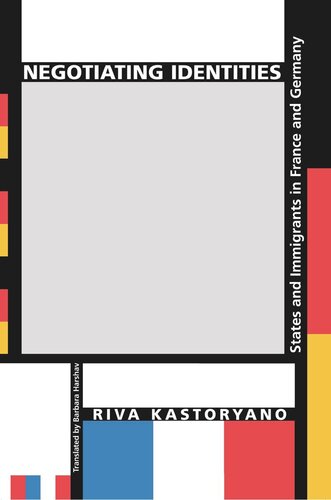

Most ebook files are in PDF format, so you can easily read them using various software such as Foxit Reader or directly on the Google Chrome browser.
Some ebook files are released by publishers in other formats such as .awz, .mobi, .epub, .fb2, etc. You may need to install specific software to read these formats on mobile/PC, such as Calibre.
Please read the tutorial at this link: https://ebookbell.com/faq
We offer FREE conversion to the popular formats you request; however, this may take some time. Therefore, right after payment, please email us, and we will try to provide the service as quickly as possible.
For some exceptional file formats or broken links (if any), please refrain from opening any disputes. Instead, email us first, and we will try to assist within a maximum of 6 hours.
EbookBell Team

4.7
46 reviewsImmigration is even more hotly debated in Europe than in the United States. In this pivotal work of action and discourse analysis, Riva Kastoryano draws on extensive fieldwork--including interviews with politicians, immigrant leaders, and militants--to analyze interactions between states and immigrants in France and Germany. Making frequent comparisons to the United States, she delineates the role of states in constructing group identities and measures the impact of immigrant organization and mobilization on national identity.
Kastoryano argues that states contribute directly and indirectly to the elaboration of immigrants' identity, in part by articulating the grounds on which their groups are granted legitimacy. Conversely, immigrant organizations demanding recognition often redefine national identity by reinforcing or modifying traditional sentiments. They use culture--national references in Germany and religion in France--to negotiate new political identities in ways that alter state composition and lead the state to negotiate its identity as well.
Despite their different histories, Kastoryano finds that Germany, France, and the United States are converging in their policies toward immigration control and integration. All three have adopted similar tactics and made similar institutional adjustments in their efforts to reconcile differences while tending national integrity.
The author builds her observations into a model of ''negotiations of identities'' useful to a broad cross-section of social scientists and policy specialists. She extends her analysis to consider how the European Union and transnational networks affect identities still negotiated at the national level. The result is a forward-thinking book that illuminates immigration from a new angle.